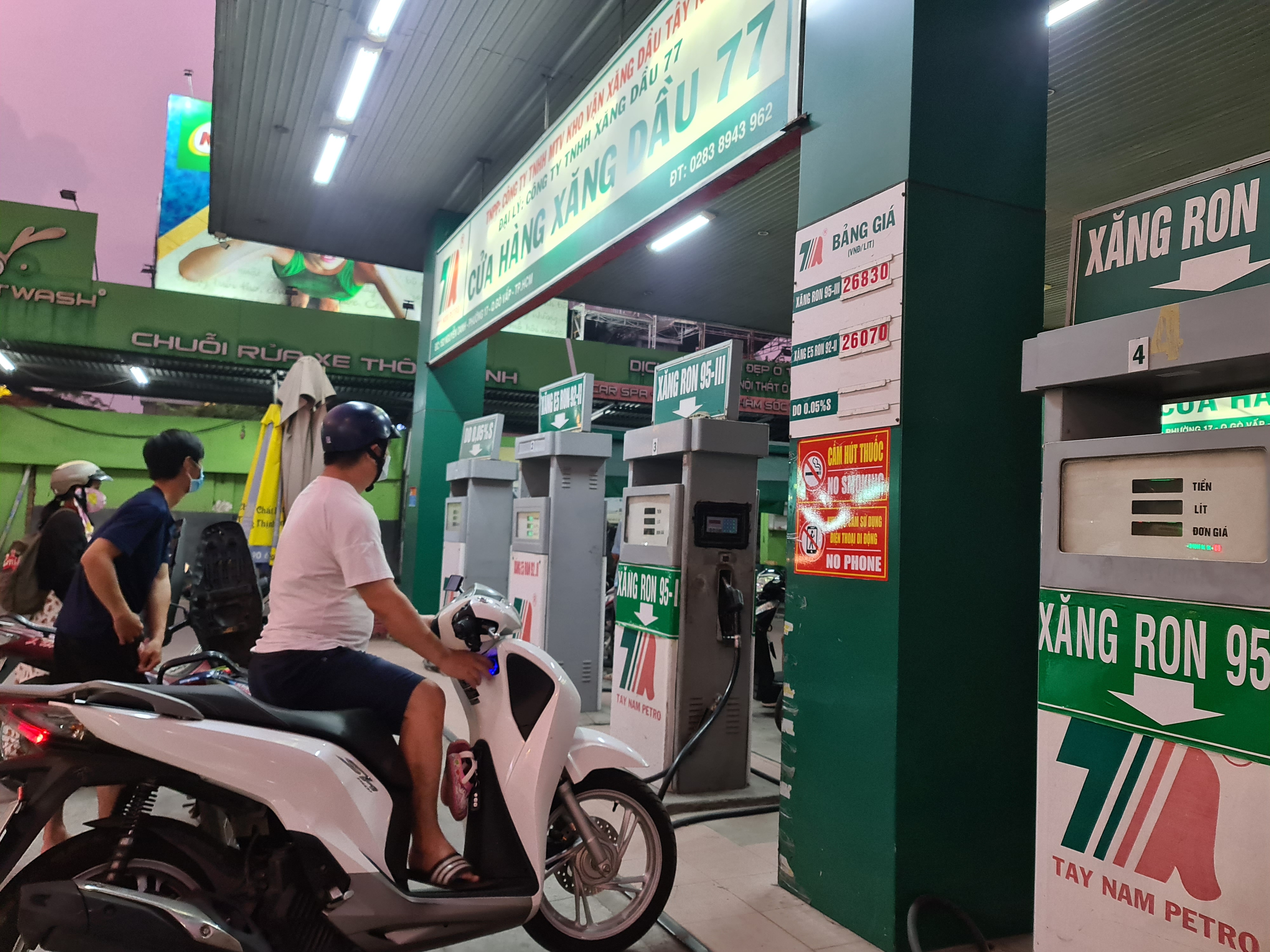Vietnamese authorities should set up scenarios to respond to rising gasoline prices as the global fuel shortage is forecast to linger, according to local experts.
The leader of a petroleum wholesaler told Tuoi Tre (Youth) newspaper on Thursday that operators of filling stations have been urging the company to boost supply as they were running out of fuel inventory.
“The market is facing a crisis, and wholesalers like us are struggling with losses,” he continued.
“For each 1,000 cubic meters of petrol sold, we will lose some VND5-7 billion [US$218,700-306,300].”
Most petroleum importers in Vietnam are also struggling with the world fuel price hikes, which have far outpaced the domestic increases.
Experts have predicted local gasoline prices to stage a strong rise in the upcoming revision on Friday.
A U.S. ban on energy imports from Russia has resulted in a supply shortage that directly affects Europe before spreading to other parts of the world, according to an official of Saigon Petro Company.
U.S. President Joe Biden on Tuesday imposed an immediate embargo on Russian oil and other energy imports to oppose Russia’s attack on Ukraine, which began on February 24.
“In the past two years, the COVID-19 pandemic has forced refineries to cut production and inventories, but the demand for fuel has spiked again as economies worldwide have implemented their post-pandemic recovery plans,” the company leader elaborated.
“In addition, political instabilities have contributed to the soaring fuel prices.”
The oil import surcharge has climbed sharply to $6-10 from $1-2 a barrel due to short supply, he added.
Moreover, crude oil also rocketed to nearly $130 a barrel on the global market and is poised to hit $200-300 in the near future.
Tax solutions are necessary
At a seminar on inflation control on Wednesday, Nguyen Ba Khang, an official from the National Financial Supervisory Commission, expressed his concern that Vietnam would fail to keep inflation under four percent this year.
Khang highlighted rising gasoline prices as the reason, adding that the soaring fuel cost in the past few weeks has led to a sharp jump in the prices of such commodities as steel and fertilizer.
Nguyen Bich Lam, former director of the General Statistics Office, authorities should consider reducing environmental protection tax on fuel products as well as revising other tax policies to respond to the current situation.
“Relevant agencies need to make sure gasoline prices go in tandem with the actual conditions of the local economy in order to protect petroleum businesses, consumers, and production and business activities,” Lam continued.
The government should prepare for scenarios where crude oil reaches $130-150 a barrel, or even higher, in order to come up with more effective response plans, said Nguyen Xuan Dinh, an official from the Ministry of Finance.
The Ministry of Industry and Trade recently sent a document to the Ministry of Finance proposing a 50 percent reduction in environmental protection tax on petroleum.
As of Wednesday, the global price of crude oil had topped $130 per barrel, while that of petrol products had stood at $142-158 a barrel.
The trade ministry expected that gasoline prices in Vietnam would be VND5,000-8,000 (US$0.22-0.35)/liter higher than those in the beginning of this year following the adjustment session on Friday.
Like us on Facebook or follow us on Twitter to get the latest news about Vietnam!


















































